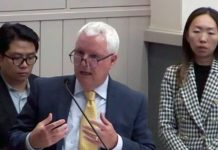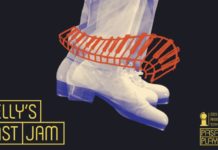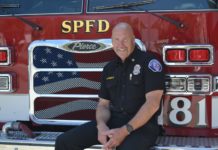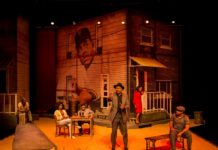
In a forum held on Monday night, dozens of citizens tuned in and made their voices heard loud and clear over the process of hiring a new police chief in South Pasadena.
Hosted by the Public Safety Commission and moderated by PSC commissioner, Ed Donnelly alongside Interim City Manager, Sean Joyce, the hour-long virtual town hall gave constituents an opportunity to present questions and comments to the City of South Pasadena.
Joyce, who has worked 25 years combined as a city manager for the cities of Walnut, Sierra Madre, Irvine, and South Pasadena, prefaced the meeting touching upon his own experience in the hiring of four police chiefs — two for South Pasadena Police Department — over the course of his career. He called the process to be undertaken a “great challenge” but also a “great opportunity” adding that the City “feel(s) a great responsibility to make sure that the right candidate is chosen; (someone) who will who best understand the community, understands the community’s core values and will edify those core values as he or she leads South Pasadena Police Department in the years ahead.”
The open forum broke down the discussion into four primary categories:
– What the professional experiences of a new chief should be,
– what their educational background should be,
– what sort of traits and personal characteristics they should have,
– and what challenges they’ll face in the community that will need to be addressed
The expectations expressed by participants almost unanimously revealed common themes of cultural/racial sensitivity, transparency, reformative education, anti-bias training, respect and awareness of community engagement, and several other common thread issues that have been prevalent in the city, particularly over the past year.
Observing the forum but not directly participating were: Mayor Diana Mahmud; City Council Members, Evelyn Zneimer, Jack Donovan, and Jon Primuth; as well as Public Safety Commissioners, Chair Amin Al-Sarraf, Jeremy Ding, Grace Liu Kung, and Lindsey Angelats.
Business owners, activists, community leaders, and former city officials actively participated, giving their uninhibited input over not just the anticipated hiring process of a new police chief but also that of the department’s most recent chief, Joe Ortiz, who resigned in November due to a controversy involving a religious fundamentalist hate group, which ensued in calls for an independent investigation into the department. Some complained there was no openness or honesty in the hiring of the last chief, including Greg Hall — a former PSC vice-chairman and retired LAPD captain — who called the process of the last appointment “faulty and was not inclusive.“
WISPPA Vice President Mary Urquhart agreed with Hall, adding that the little to no public involvement in Ortiz’s hiring process was a “big mistake”. She appended a previous request by Friends of the Library President, Bianca Richards, to hire someone familiar with Los Angeles, Urquhart reasoning, “We do need someone that has relationships with other police departments in the area. If there is an emergency, we need to call upon those other departments.” She also shared concerns that the slew of recent controversies surrounding the police department would inevitably bring additional challenges to whomever would take up the position.
One of those challenges lies within the strained relationship between the department and groups like Black Lives Matter South Pasadena, which has been falsely accused by officers in the department — including Corporal Randy Wise via police report, and on camera — as being anti-police, despite cofounders London Lang and Fahren James’ public disapproval of negative rhetoric against cops and a desire to cooperate peacefully with local authorities. Several incidents over the course of the summer, however, soured attitudes about SPPD, as officers were criticized for implicit bias and lack of response in assault cases against protesters, and in some cases showing what some believed to be covert and explicit support for far-right extremist ideology.
In response to the numerous voices evoked over the summer which demanded the reformation and restructuring of the police department, City Council appointed a subcomittee to address the growing need for civilian oversight. This came after the strong impelling of Anti-Racism Committee member, Will Hoadley-Brill, in June of last year. The Council voted unanimously 5-0.
Joyce spoke to the success (or lack thereof) of the subcomittee’s panels, of which there are few on record, saying that from what he was told, they did allow for the inclusiveness of the community but that he has “(his) doubts as to whether or not the insights offered by those panels were used. Obviously, I was here when a change was made with the (police) chief and so I really do want to hear what folks are looking for so that I can come to some understanding of whether or not there is a potential individual that was considered last time, but where the (former) city manager (Stephanie DeWolfe), for reasons of her own, chose not to appoint somebody better identified for success in South Pasadena… I don’t know if it was the process that failed or somebody failed the process.”
On behalf of ARC on Monday, member Phung Huynh submitted a list of demands, highlighting subjects aligning with the grass-root organization’s mission of “addressing the deep wounds of systemic racism in our city as well as working towards racial justice in government policy (and) public safety.” Some of these demands for an ideal candidate included: extensive knowledge in data analysis, transparency, anti-racism, and implicit bias training; “the ability and commitment to incorporate an understanding of mental health issues into policing policies and guidelines”; and supporting a recruitment process that will “include a focus on POC and women candidates, (and) if possible, a candidate who is also bilingual.”
William Kelly, a cofounder of another activist group, Care First South Pasadena, stated that the head of the department must be someone with experience working in diverse communities, have developed relationships with social workers when performing homeless outreach, and should be highly educated in fields like criminology and sociology, preferably with a masters degree. His thoughts were supported by fellow members Helen Tran and Matthew Barbato, who concurred with many of the night’s speakers and added that a good model to follow is a chief that is also “someone who’s a little bit reform-minded and can see where we’re going into the future of policing.”
Ellen Daigle — a business owner for over 40 years in town, who has served on serval commissions and boards and is a fellow WISPPA Vice President — wishes the next chief in line to inspire respect and dignity from both citizens and officers alike, citing Chief Miller, who served as the head of the department from 2012-18 as an example. Daigle urged the consideration of Interim Chief Brian Solinsky as a top candidate, mentioning that it was he whom Miller gave his stars and therefore felt strongly about his qualifications. Her sentiment was backed by Urquhart as well as Planning Commission Chair, Janet Braun.
Beyond charisma as an ideal trait, resident Rich Elbaum brought focus to some of the more technical properties that come with the job, believing the next police chief should have demonstrated experience, “not only working with data, but making changes in the department based on data.” Elbaum elaborated that South Pasadena, among other cities in California, will be required to collect and report said data under the Racial Identity and Profiling Act. “(This) is to try and eliminate unconscious or conscious bias” for example, like “who gets stopped by the police.” He said what’s important to him is “a chief that’s going to use the data, share it with the public, and make changes as needed based on that data.”
Confronting the police handling of two conflicts, resident Josh Albrektson reminded everyone of two instances that he “thought the South Pasadena police really let everybody down last year,” referring to the Richard Cheney incident, in which a far-right supporter drove his truck onto a sidewalk, almost hitting BLM protesters, which he calls an “an aggressive act of intimidation” and one that went directly unpunished by responding officers.
Joyce responded to this incident later in the evening, using it as an example of the interrelation between City Manager and Police Chief. He stated that “the fact Richard Cheney was not cited, in my view, was not dealt with appropriately. Where I would ordinarily not wish to get involved in that, and in fact, have a long history over my time of not getting involved in something like that, if it’s not done right, I’m going to involve myself in (it).”
The other example, Albrektson said, was Interim Chief Solinksy’s perceived sympathetic stance held for Griffins of Kinsale, the local pub that was shut down last St. Patrick’s Day for COVID-related violations. “I had no problem with how they handled it a year ago… but there was a (news) interview” where Solinsky “seemed very sympathetic to the business. I’m hoping that (when) the next police chief is faced with a similar situation where business is opening against COVID restrictions, they would actually be more assertive,” he concluded.
Expanding upon qualifications, Judith Harris, a licensed clinical social worker and mental health therapist, feels the chief should “have experience and is supportive of working jointly with mental health professionals in police work”, to be “open to admitting deficiencies in training and experience in areas such as working in mental health and diversity and equity” and embody “an interest in increasing his or her education in these areas as well as that of the entire SPPD (police) force.” She too, endorsed Solinsky based on his education.
While many thoughts aligned Monday evening, showing true community engagement, citizens await concrete results from their input. Interim City Manager Joyce made it clear as long as the process is ongoing, that involvement will remain open. He ensured that feedback could be directed to him by either phone or e-mail.
“Let me know your thoughts,” he insists, “If you wake up with an epiphany, please let us know! Ed and I are working together in terms of how we think about this.” When asked about the ultimate hiring of a new police chief, Joyce confided that, “It is my hope to be able to make that appointment before I leave.”


















.png)









